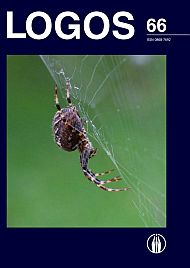Transgresija – Ribų Patirtis Ir Absoliutaus Netapatumo Kalba
Transgression – Experience of Limits and the Speech of Absolute Unidentity
Author(s): Stasys MostauskisSubject(s): Epistemology, Social Philosophy, Structuralism and Post-Structuralism, Philosophy of Religion
Published by: Visuomeninė organizacija »LOGOS«
Keywords: Foucault; transgression; death of God; madness; sexuality; marginal experience;
Summary/Abstract: The article discusses the conception of transgression offered by M. Foucault and its connections with artistic creation. It argues that this conception defines its object, not from the viewpoint of specific contents or implemented functions, but from the viewpoint of the relation with the limit. Therefore, the most important description of transgression relates to the power to enter the reviewed object from its side boundary and in such way to load the object with something that does not form the object. The movement of transgression not only alleges the being through difference but also establishes the link between distinctive territories. According to Foucault‘s opinion, this connection is the basis for transgression - not only to draw the boundary, but also to safeguard the metabolism proceeding through it. However, this is very paradoxical metabolism, because it does not guarantee any inter-recognition. It is functioning just as the confrontation of the absolute unidentity. This conception of transgression is substantiated on the logic of “reciprocal dependence”. Reciprocal dependence argues that the world of positive history, which claims the death of God, does not liberate itself from sacrum authority, which a human becoming wise does not escape dependence upon the outcast madness and that artistic creation’s alleged disjuncture in regard to nothingness/madness necessarily correlates with it.
Journal: LOGOS - A Journal of Religion, Philosophy, Comparative Cultural Studies and Art
- Issue Year: 2011
- Issue No: 66
- Page Range: 24-33
- Page Count: 10
- Language: Lithuanian

